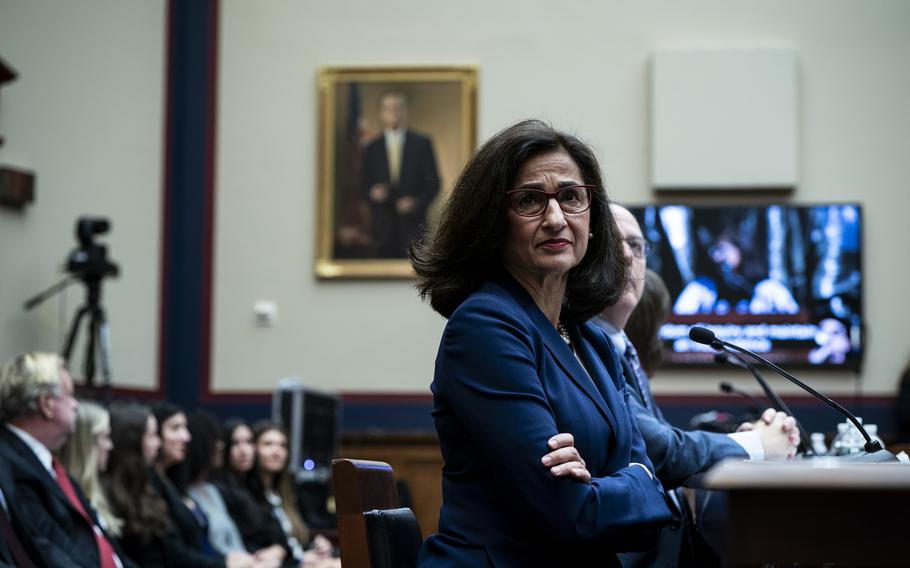U.S.
Columbia University president resigns after drawing ire over Israel-Gaza protests
The Washington Post August 15, 2024

Minouche Shafik, then president of Columbia University, testified before Congress in April. (Haiyun Jiang/The Washington Post)
Columbia University President Minouche Shafik has resigned her position, ending a short and turbulent tenure marred by controversy and backlash over how she handled an outbreak of pro-Palestinian protests on campus last spring.
During the protests, Shafik twice summoned New York police to campus to disperse protesters, including those who had set up a Gaza solidarity encampment and another group that occupied a campus building. In May, a group of faculty voted that they had no confidence in Shafik, accusing her of violating students’ rights and academic freedom in her handling of the demonstrations.
Shafik announced her resignation, effective immediately, in an email to Columbia affiliates on Wednesday night.
She wrote that she oversaw “a period of turmoil where it has been difficult to overcome divergent views across our community” and that recent events have “taken a considerable toll on my family, as it has for others in our community.”
Shafik added, “I have been able to reflect and have decided that my moving on at this point would best enable Columbia to traverse the challenges ahead.”
The Board of Trustees wrote in its own letter to the community Wednesday night that it had “regretfully” accepted Shafik’s decision to step down. The trustees wrote that Katrina Armstrong, chief executive officer of Columbia’s Irving Medical Center, will serve as interim president.
“At this critical time for Columbia, we are taking all necessary steps to ensure a smooth leadership transition,” the trustees wrote. “We believe that Katrina is the right leader for this moment.”
Shafik, an Egyptian-born economist, was the first woman to hold Columbia’s top job since the university’s founding in the 18th century. The role proved difficult almost from the start.
She was only a few months into her presidency when the Oct. 7 Hamas attack and resulting Israel-Gaza war touched off months-long, intense protests on Columbia’s campus. At the same time, Congress launched an investigation into Columbia’s “failure to protect Jewish students” — including calling Shafik to testify before a House committee about antisemitism — and the Education Department opened its own probe over alleged Islamophobia and antisemitism.